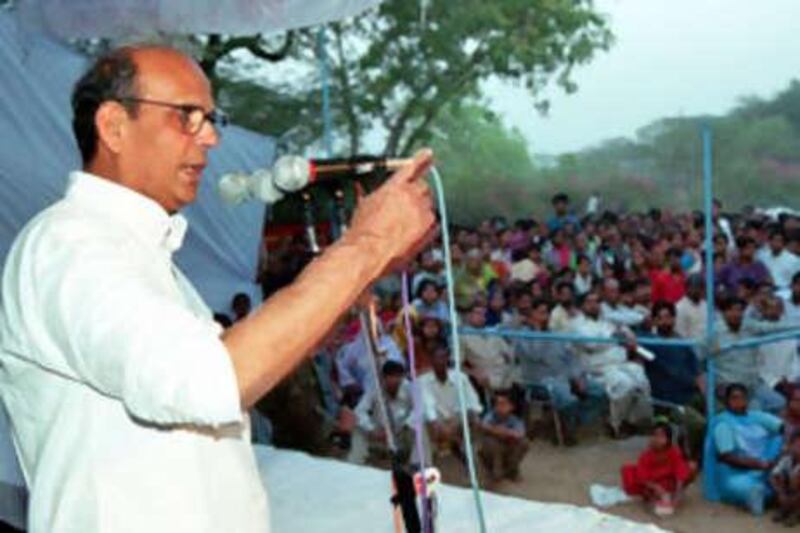Vishwanath Pratap Singh may have served as prime minister of India for less than a year, but he left a significant legacy in his controversial implementation of the Mandal Commission, which led to a revolution. The commission, originally conceived in 1980, fixed a quota of public-sector jobs for lower caste members of Indian society, much to the horror of the higher castes, and acted as a catalyst for the escalation of caste-based parties jostling for power in the political arena. The group to benefit most notably from the "Mandalisation" of India were the Dalits, or Untouchables, who today work throughout public service.
Born the youngest of five sons in 1931 into a wealthy landowning family in Allahabad in Uttar Pradesh, VP Singh was adopted aged five by the childless Maharaja of the neighbouring state of Manda, succeeding to the throne when his adoptive father died. He studied law at Udai Pratap College, Varanasi, and physics at Fergusson College, Pune, intending to become a nuclear scientist. Politics soon proved to be a greater draw.
His moral probity and sensitivity distinguished him from his contemporaries and he became renowned for his honesty and for his tendency to resign from governmental posts when his principles were challenged. Elected to the state assembly in 1969 and parliament in 1971, he was appointed deputy minister of commerce by Prime Minister Indira Ghandi in 1974. When she returned to power in 1980, Mr Singh was named chief minister of Uttar Pradesh, a position he held until 1982. He oversaw the surrender of a large number of bandits, but tendered his resignation on failing to defeat them, although several ringleaders later publicly surrendered.
As finance minister under Rajiv Ghandi, Mr Singh directed sweeping raids on those suspected of tax evasion, many of whom were, inconveniently, financial supporters of the prime minister. As the campaign peaked, he was made defence minister. This position was similarly short-lived after Mr Singh started an inquiry into a deal to purchase German submarines and he was sacked. In 1989, he led a coalition comprising communists and, surprisingly, their natural enemies, the Bharatiya Janata Party, called the National Front. It defeated Rajiv Ghandi in the general elections that year.
VP Singh was born June 25 1931, and died Nov 27. He is survived by his wife and their two sons. * The National






